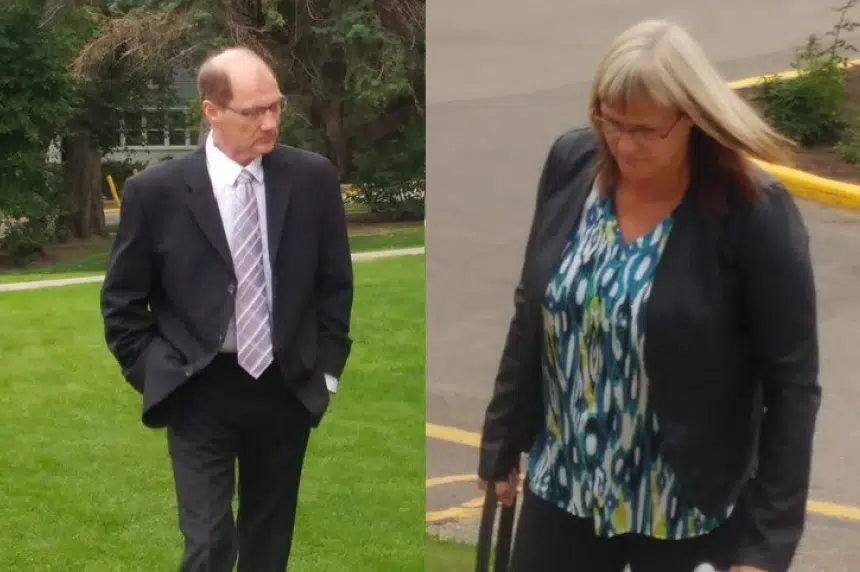The case against two Saskatchewan lovers facing a re-trial for conspiring to murder their spouses may be in jeopardy, as a Court of Queen’s Bench judge considers whether to throw out the key piece of evidence against them.
Lawyers for Curtis Vey and Angela Nicholson argue that a secret recording from an iPod hidden by Vey’s wife in 2013 was illegal, because neither of the two parties involved in the conversation knew it was being recorded.
The recording, set up by Brigitte Vey after suspicions her husband was cheating on her, captured Curtis Vey and Nicholson having a conversation that involved plans to kill their spouses.
Vey discussed killing his wife by drugging her and starting a house fire, while Nicholson discussed drugging her own husband and making him disappear.
The pair was originally convicted in 2016 for conspiracy to commit murder. A judge sentenced them to three years in prison each.
However, a Saskatchewan Court of Appeals decision in August 2018 found the trial judge erred in their charge to the jury and a new trial was ordered.
Vey and Nicholson have both argued they never intended to follow through on the acts discussed in the 2013 conversation.
Vey’s lawyer Aaron Fox told court on Tuesday that the “surreptitiously-illegal recording” made by his client’s wife should be inadmissible at trial because Brigitte Vey was not a party to the conversation. Canadian law dictates that for a recording to be legally obtained, at least one person involved in the conversation must know it’s being recorded.
Fox also argued Vey and Nicholson had a reasonable expectation of privacy given they were in a private home and were the only two people present.
Fox and Ron Piche, who represents Nicholson, added that RCMP failed to obtain the proper warrants to seize the iPod the conversation was recorded on. Warrants were also needed to legally listen to the recording and copy it onto other devices.
Crown prosecutor Lori O’Connor submitted to the judge that Brigitte Vey’s recording should be allowed because she voluntarily provided it to police.
However, when the judge asked O’Connor to provide evidence of that voluntary surrender of the iPod, the Crown only noted there was no evidence Vey resisted a police request for it.
The defence lawyers pointed out in the police interview transcript that RCMP officers were the ones to say “I’m going to need to take that,” in reference to the iPod in their conversations with Brigitte Vey. There was also an indication that a Corporal had told a Constable to ensure they acquired the iPod as evidence.
O’Connor also suggested the recording should be looked at in a similar sense to a whistleblower, since police wouldn’t have known a crime may have occurred involving Curtis Vey and Nicholson had Brigitte Vey not come forward.
O’Connor added the recording was the “crux” of her case against Vey and Nicholson, and having it deemed inadmissible could significantly impact the re-trial of the two.
Vey and Nicholson’s re-trial is scheduled for May 21. A decision on the admissibility of the recording is expected beforehand.











